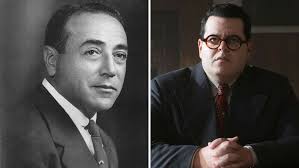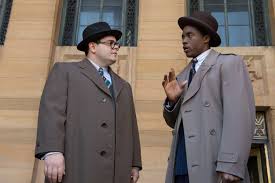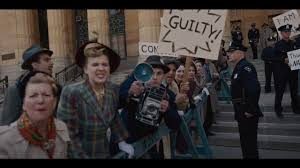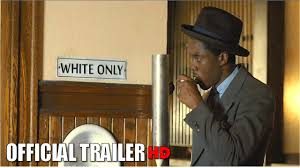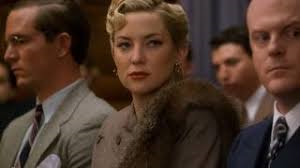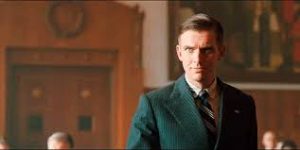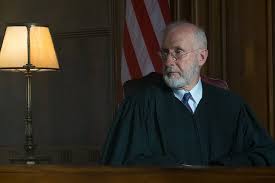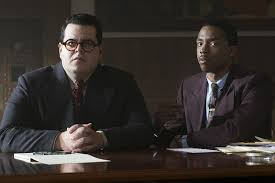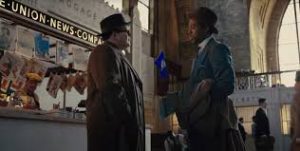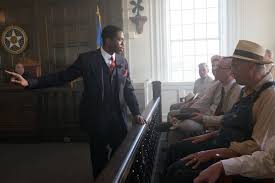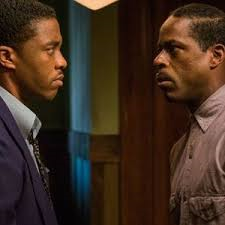SHORT TAKE:
Cynical and gratuitously perverted view of super hero concept, following The Boys – a human led group, bent on vengeance against the evil enhanced and the corporation which produces, protects, promotes, and profits from them.
WHO SHOULD WATCH
Not fit for human consumption – nor for non-humans neither.
LONG TAKE
The idea of humans seeking to uncover corrupt behavior of enhanced people is an interesting one. After all: “Power corrupts and absolute power — ”
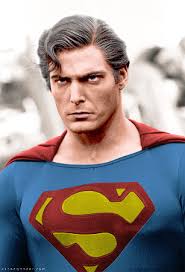 The possibility of a rogue super hero is not a new one. The comics have explored this,
The possibility of a rogue super hero is not a new one. The comics have explored this, 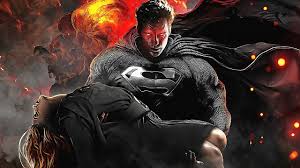 especially concerning the almost invincible Superman in stories about everything from alternate universes to the random effects of
especially concerning the almost invincible Superman in stories about everything from alternate universes to the random effects of 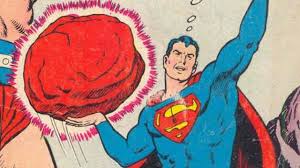 red Kryptonite. And in the Justice League comics Batman carries green Kryptonite in his utility belt —
red Kryptonite. And in the Justice League comics Batman carries green Kryptonite in his utility belt —  just in case. And that’s not even bringing up the extremely disturbing Brightburn.
just in case. And that’s not even bringing up the extremely disturbing Brightburn.
But The Boys takes it too far. Whereas Superman’s darker side manifestations are aberrations, in The Boys the incidents of drug abuse, sexual depravity, disregard for non-enhanced human life, murder and rape are par for the course with 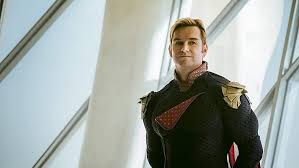 The Seven, a corporate sponsored set of “supes” whose public persona is a thin veil over people whose abuse of powers are quite literally – nauseating. From group orgies to the unrepentent liquification of a human when run through by a variation on The Flash, these are nobodies idea of heroes.
The Seven, a corporate sponsored set of “supes” whose public persona is a thin veil over people whose abuse of powers are quite literally – nauseating. From group orgies to the unrepentent liquification of a human when run through by a variation on The Flash, these are nobodies idea of heroes.
The Boys is an underground organization of humans, occasionally helped by a few supes with a modicum of conscience, who seek to expose and end both the supes and Vought International, a corporation which not only promotes and profits from these scum in supes’ clothing, but may have created the supes with a drug called Compound V.
There are no good guys in The Boys. No one and nothing to cheer for and no moral center.
 Karl Urban (Lord of the Rings) chews a lot of scenery as Billy Butcher, the ringleader of The Boys with a personal ax to grind against the supes. He is aided by
Karl Urban (Lord of the Rings) chews a lot of scenery as Billy Butcher, the ringleader of The Boys with a personal ax to grind against the supes. He is aided by 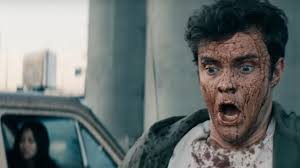 Hughie Campbell (Jack Quaid – son of Dennis Quaid and Meg Ryan) bent on revenge for the death of his fiancee by A Train.
Hughie Campbell (Jack Quaid – son of Dennis Quaid and Meg Ryan) bent on revenge for the death of his fiancee by A Train. 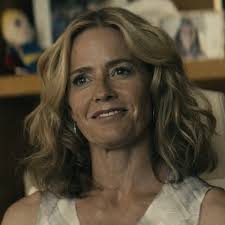 Elisabeth Shue (the second Jennifer in the Back to the Future trilogy) plays Madelyn Stillwell, the scheming corporate PR/VP at Vought. The supes are played by actors with unnotable resumes including soap operas and bit parts. The resulting ensemble performances are nothing to write home about.
Elisabeth Shue (the second Jennifer in the Back to the Future trilogy) plays Madelyn Stillwell, the scheming corporate PR/VP at Vought. The supes are played by actors with unnotable resumes including soap operas and bit parts. The resulting ensemble performances are nothing to write home about.
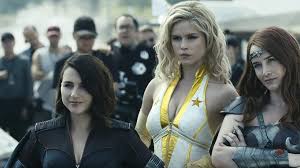 The most love the creators gave this misbegotten insult to the genre is the special effects rendered for the gore and powered perversion.
The most love the creators gave this misbegotten insult to the genre is the special effects rendered for the gore and powered perversion.
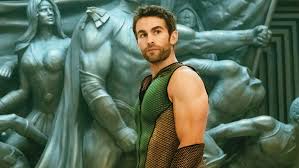 Anyone can write to play down to the lowest level of human impulses. But it takes thought and decent writing to craft a story which strives to teach lessons which ennoble the human spirit and encourage our better angels. This was the original intent of the creation of characters like Superman – to be the embodiment of our better natures and examples for, well, Truth, Justice and The American Way.
Anyone can write to play down to the lowest level of human impulses. But it takes thought and decent writing to craft a story which strives to teach lessons which ennoble the human spirit and encourage our better angels. This was the original intent of the creation of characters like Superman – to be the embodiment of our better natures and examples for, well, Truth, Justice and The American Way.
The Boys is just the next acid bead in the continuing drip drip of denigration oozing out of the anti-culturalists, those who would sneer at American traditions, including patriotism, religious affiliation, respect for the marital union and even the dignity of innocent unborn life.
And it’s not even good quality. Give The Boys a — super — wide berth.


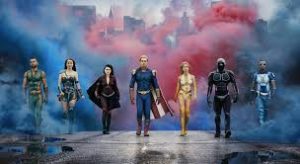

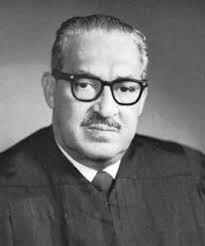
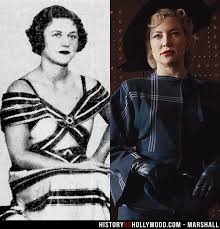

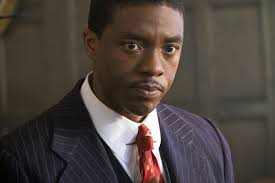
 Black Panther Clan and King of Wakanda in the upcoming Black Panther franchise.
Black Panther Clan and King of Wakanda in the upcoming Black Panther franchise.
